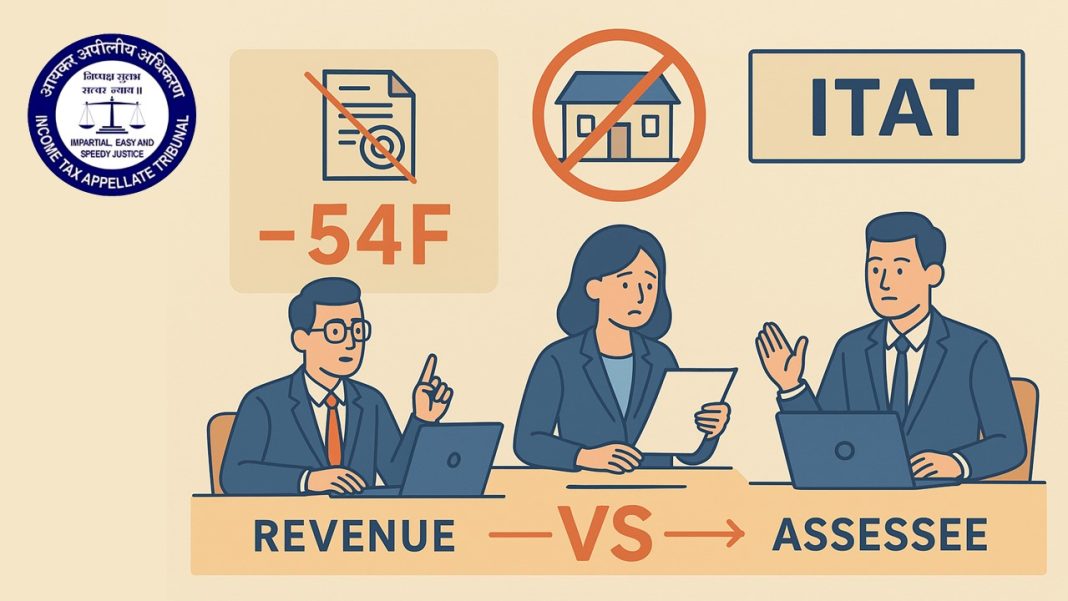Section 54F Exemption Cannot be Denied Merely Because Registration of Property is Pending
The present appeal has been filed by the ITO-19 (3)(1), Mumbai (Appellant), against a taxpayer named Sangeeta (Respondent), in the Income Tax Appellate Tribunal (ITAT) “G” Bench, Mumbai, before Shri Pawan Singh (Judicial Member) and Smt Renu Jauhri (Accountant Member). The case is related to the assessment year 2018-2019 and was decided on November 13, 2025. The appeal has been filed challenging an order dated August 17, 2023, passed by the CIT(A).
The assessee claimed exemption under Section 54F after selling a property and investing in another residential house. However, the Assessing Officer (AO) did not accept his claim because the new house was not registered in her name, and the assessee failed to produce a registered sale deed/title document for the new house before the AO.
The aggrieved assessee, with the action of the AO, then approached the CIT(A). The CIT(A), after hearing the arguments of both sides, allowed the exemption under section 54F. The Revenue, dissatisfied with the action of CIT(A), then filed an appeal before ITAT.
Revenue’s Arguments:
The taxpayer bought a new house but did not have a registered sale deed. According to the tax department, without a registered document, ownership is not legally valid, and hence the assessee is not eligible to claim exemption under Section 54F.
To support this point, the authorised representative of Revenue also cited legal rules like the Transfer of Property Act, the Registration Act, etc., and also an earlier Supreme Court judgement in Suraj Lamp & Industries Pvt. Ltd. vs State of Haryana (2012) 340 ITR 1 (SC) case. In this case, SC ruled that immovable property can be lawfully transferred only by way of a registered deed of conveyance.
Assessee’s Arguments:
Assessee claimed that Section 54F only requires the purchase of another property using money received after selling the previous property; it does not discuss any necessary registration. As long as money is invested in a residential property within the allowed time, an exemption should be allowed under Section 54F. To support her point, she also cited CBDT’s Circular 471 and earlier decisions of the Court, which say registration is not compulsory for claiming exemption under 54F.
ITAT’s Observation
The AO did not dispute that the taxpayer invested money in buying the new house. The only issue was the lack of a registered purchase deed. Section 54F does not mandate that the newly bought property must be registered in the name of the purchaser.
Courts have repeatedly held that if the payment is made toward the purchase of a new house, the exemption cannot be denied only because registration is pending. To announce its final decision, the tribunal cited some earlier judgements titled Balraj v. CIT (Delhi HC) and Sambandam Udai Kumar (Karnataka HC).
Final Decision
In conclusion to the aforesaid observations, the ITAT agreed with the ruling of CIT(A). They held that non-registration alone cannot be a reason to deny the Section 54F exemption. Since the investment in the new property was genuine, the assessee is eligible for the exemption. Revenue’s appeal was dismissed.
Citation: ITO – 19(3)(1), Mumbai Vs Sangeeta (ITAT Mumbai); ITA No. 3724/MUM/2023; 13/11/2025; 2018-2019



